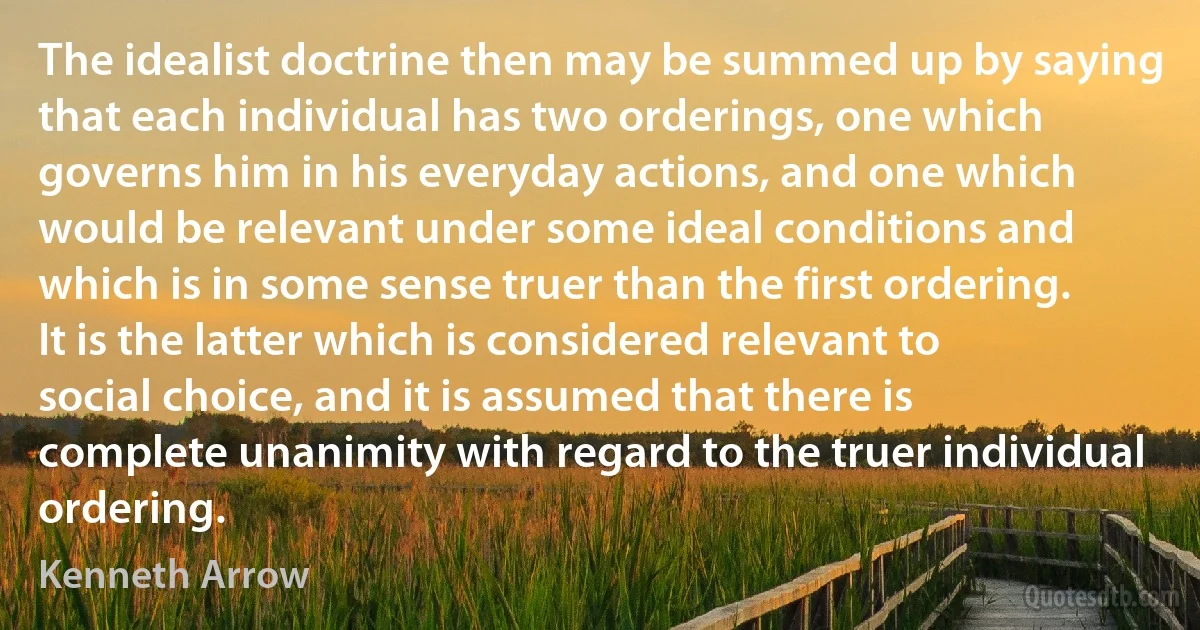
The idealist doctrine then may be summed up by saying that each individual has two orderings, one which governs him in his everyday actions, and one which would be relevant under some ideal conditions and which is in some sense truer than the first ordering. It is the latter which is considered relevant to social choice, and it is assumed that there is complete unanimity with regard to the truer individual ordering.
Kenneth ArrowRelated topics
choice doctrine idealist saying sense underRelated quotes
We see in the 20th Century an unfortunate trench warfare, in which psychoanalysis, in a struggle against the internalized compulsion and superstition of a particular doctrine, has expressed itself atheistically. By contrast, theology is not merely under suspicion of talking soullessly about God. Both theology and psychology, in striving for human health, need one another like the right and the left hand.

Eugen Drewermann
To sum up: numbers appear to represent both an attribute of matter and the unconscious foundation of our mental process. For this reason, number forms, according to Jung, that particular element that unites the realms of matter and psyche. It is "real” in a double sense, as an archetypal image and as a qualitative manifestation in the realm of outer-world experience.

Marie-Louise von Franz
When I received the Nobel Prize, the only big lump sum of money I have ever seen, I had to do something with it. The easiest way to drop this hot potato was to invest it, to buy shares. I knew that World War II was coming and I was afraid that if I had shares which rise in case of war, I would wish for war. So I asked my agent to buy shares which go down in the event of war. This he did. I lost my money and saved my soul.

Albert Szent-Györgyi
Saying that you don't care about the right to privacy because you have nothing to hide is no different than saying you don't care about freedom of speech because you have nothing to say. It's a deeply anti social principle because rights are not just individual, they're collective, and what may not have value to you today may have value to an entire population, an entire people, an entire way of life tomorrow. And if you don't stand up for it, then who will?

Edward Snowden
I believe that the main lesson which our generation has learnt is that we must find a new limit for the activities of government, a limit which leaves ample scope for sensible experimentation but which secures the freedom of the individual as the mainspring of all social and political activity. The whole purpose of these lectures has been to suggest that we can find such a limit if we are willing to revive and develop the ancient ideal of the Rule of Law.

Friedrich Hayek
